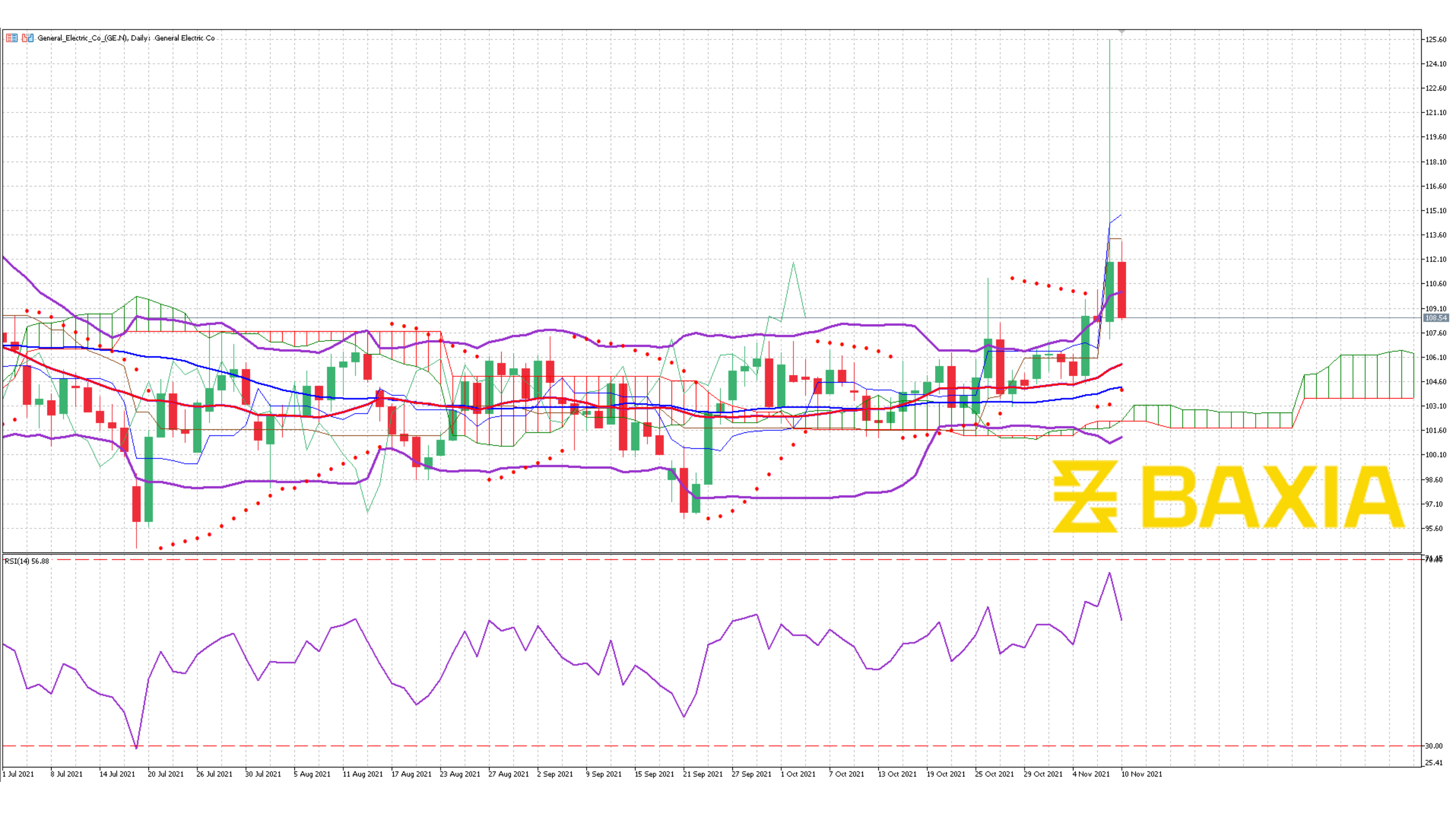
The storied U.S. industrial conglomerate seeks to simplify its business, pare down debt and breathe life into a battered share price, the company said.
The split marks the end of the 129-year-old conglomerate that was once the most valuable U.S. corporation and a global symbol of American business power.
GE shares closed 2.6% higher at $111.29 on Tuesday, after reaching a nearly 3-1/2 year high, compared with a 0.35% drop in the broader S&P 500 index. The industrial conglomerate's shares have gained about 9% since July 30 when the company reduced the number of its traded shares.
In the past three years, GE Chief Executive Larry Culp has focused on reducing debt by selling assets, and improving cash flows by streamlining operations and cutting overhead costs.
The Boston-based company said the three businesses would focus on energy, healthcare and aviation.
GE will separate the healthcare company, in which it expects to retain a stake of 19.9%, in early 2023. It will combine GE Renewable Energy, GE Power and GE Digital and spin off the business in early 2024. read more

Following the split, it will become an aviation company, helmed by Culp. The aviation company will inherit GE's other assets and liabilities, including its runoff insurance business.
It is the boldest attempt under Culp, who took GE's reins in 2018, to simplify the company's business. Measures taken so far have led to an improvement in GE's balance sheet, putting it on track to reduce debt by more than $75 billion by the end of 2021.
The company now expects to generate more than $7 billion in free cash flow in 2023 and is planning to monetize its stakes in Baker Hughes, AerCap and the healthcare unit to cut its net debt to less than $35 billion by then.
Culp said that the decision to split the company was paved by GE's progress in terms of repairing its balance sheet and operational performance.
GE's aviation business, usually its cash cow, makes jet engines for Boeing Co and Airbus SE. Questions remain over how the company will fund the unit's operations, which tend to be very capital-intensive.
The company reckons the aviation unit's low-cost structure, strong order book and investment-grade balance sheet would let it tap capital markets. But some analysts say the unit's valuation could suffer as it will also take over GE's financial liabilities after the split.
"There is clearly a debate among investors as to how much the aviation valuation should be penalized vs peers because of the financial liabilities," analysts at Barclays wrote in a note.
An industry source, however, said the aviation business has been distracted until now by propping up the rest of the company, which took a lot of the unit's bandwidth. The unit is expected to be valued at more than $100 billion after the spinoff, the source added.
Culp also said the split would make different units "more focused" and result in "greater accountability."
The company expects to take a one-time charge of $2 billion related to separation and operational costs and tax costs of less than $500 million.
We love to hear new ideas from traders and want to know what you think!
If you like this topic and want to suggest future topics that you find helpful, let us know by clicking the ‘submit your feedback’ button below.
Trading foreign exchange on margin carries a high level of risk, and may not be suitable for all investors. Before deciding to trade foreign exchange you should carefully consider your investment objectives, level of experience, and risk appetite.
Nothing contained in this website should be construed as investment advice. Any reference to an investment's past or potential performance is not, and should not be construed as, a recommendation or as a guarantee of any specific outcome or profit.
